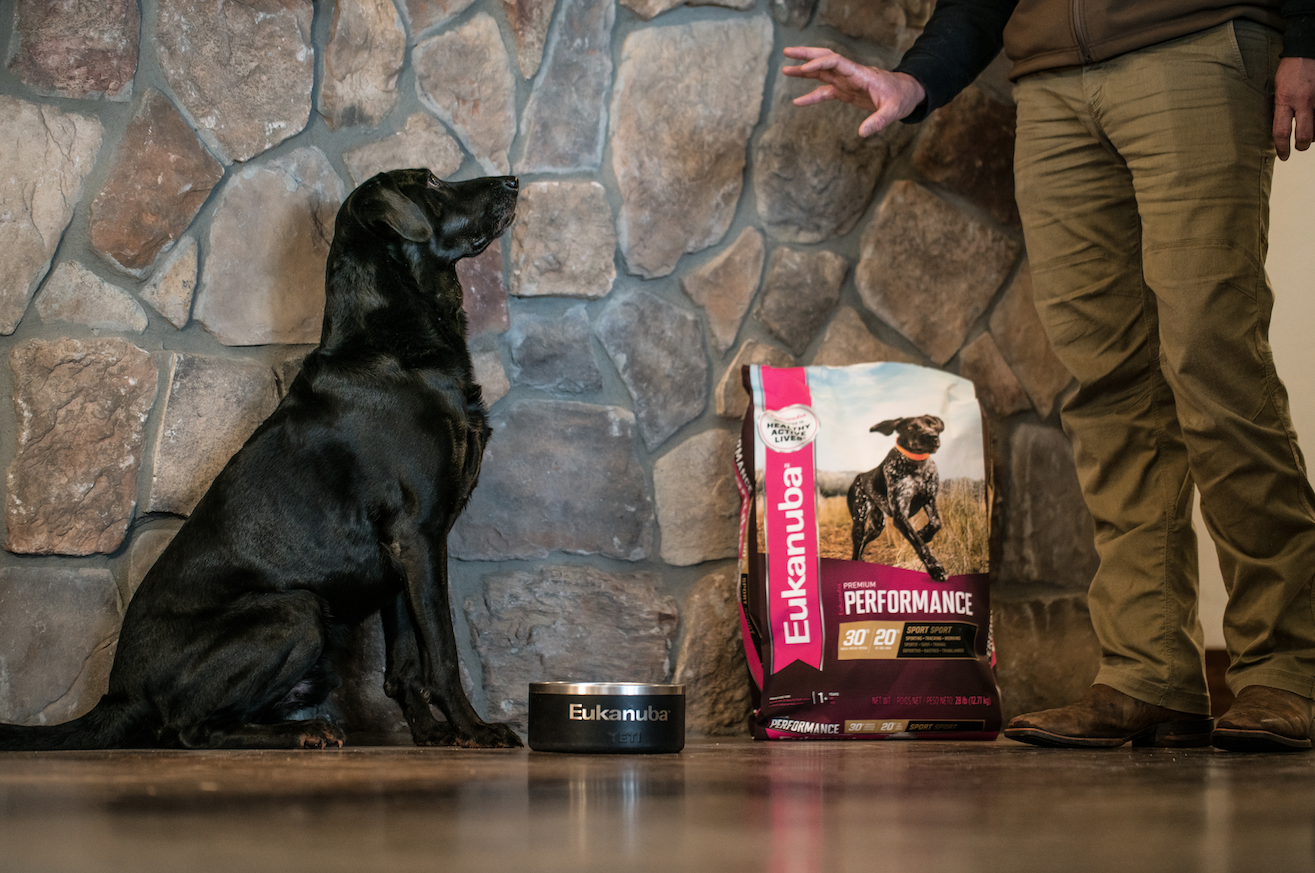Taking care of your dog’s digestive system through nutrition is a great first step to help maximize their potential in the fields and blinds.
SPONSORED CONTENT
Digestion is important for sporting dogs to perform at high levels. Diets made from high-quality ingredients tend to be more easily digested, which helps dogs optimize nutrient absorption. In addition, some formulas provide nutrients specific to aiding overall gastrointestinal (GI) health.
Understanding the Dog’s Digestive System
The dog’s digestive system is comprised of seven parts:
- Teeth and Mouth: Chewed food is the first stage of digestion
- The Esophagus: The pathway that connects the mouth and the stomach
- The Stomach: Partially digested food is stored and then broken down
- The Small Intestine: Where digestion and the absorption of nutrients occurs
- The Large Intestine: Where water and other nutrients are absorbed
- The Pancreas: An organ that produces enzymes to help break down carbohydrates, fat and protein
- The Liver: An organ that produces bile and helps with fat absorption

Some Ingredients are Easier for Dogs to Digest
According to Russ Kelley at Eukanuba’s Pet Health and Nutrition Center, “at Eukanuba, we use a digestibility index to study how much nutrition is supplied by particular foods. The index evaluates how easily dogs process food and absorb nutrients.” Foods with higher digestibility rates may be a result of using higher-quality ingredients. Improved digestion means more nutrients are absorbed by the dog’s body.
Some formulas like Eukanuba’s Premium Performance line contain solid ingredients that are precision ground which also makes digestion easier. Finely-ground carbohydrates from corn meal, barley, and grain sorghum (a cereal) can be efficiently absorbed by the digestive system.

Nutrients that Positively Impact GI Health
Hard-working sporting dogs are frequently placed in high-stress situations which can challenge their digestive systems. Physical stress can elevate cortisol levels and as a result, dogs can experience gastrointestinal upset. According to Kelley, “Dogs with upset GI systems can be low on energy and their attention may be less sharp on pointing, flushing or retrieving.”
Feeding your dog a diet with certain key nutrients can have a positive impact on their GI health. Kelley says, “nutrition that supports the GI system includes insoluble fibers, psyllium, prebiotics, and beet pulp. These ingredients help ensure that nutrients are absorbed by the dog’s body.” Fermentable fiber in the form of fructoligosaccharides (FOS) and beet pulp play a prebiotic role by stimulating the production of short chain fatty acids which nourish the intestinal cells. And FOS also provides a prebiotic effect by stimulating beneficial bacteria. The addition of psyllium aids in the passage of stool.

Size Matters
Another aspect that plays a larger role in digestion than most owners and handlers realize is kibble size. Kibble that is small and perfectly round is easy for a dog to swallow without chewing. Without being chewed, the kibble isn’t ground by the teeth. Swallowed kibble allows many nutrients to pass through the small intestine without being absorbed. So, slightly larger kibble size formed in irregular shapes encourages chewing and aids in digestion. That chewing also helps reduce tartar and plaque build-up on the teeth.
Taking care of your dog’s digestive system through nutrition is a great first step to helping them maximize their potential in the fields and blinds. Consider a high-quality diet like those offered in Eukanuba’s Premium Performance line. The range of activity-based formulas are specifically designed to help unleash every sporting dog’s potential.




